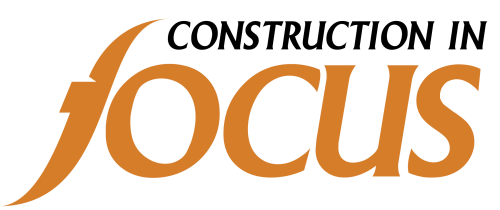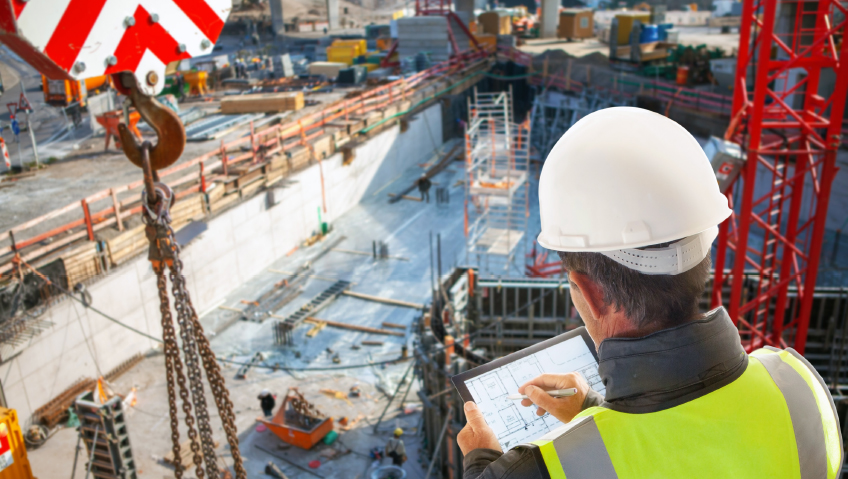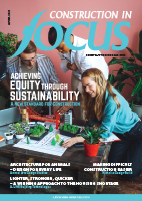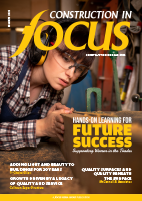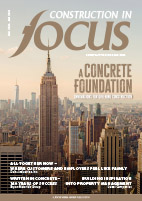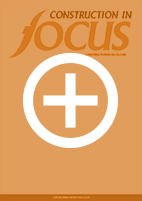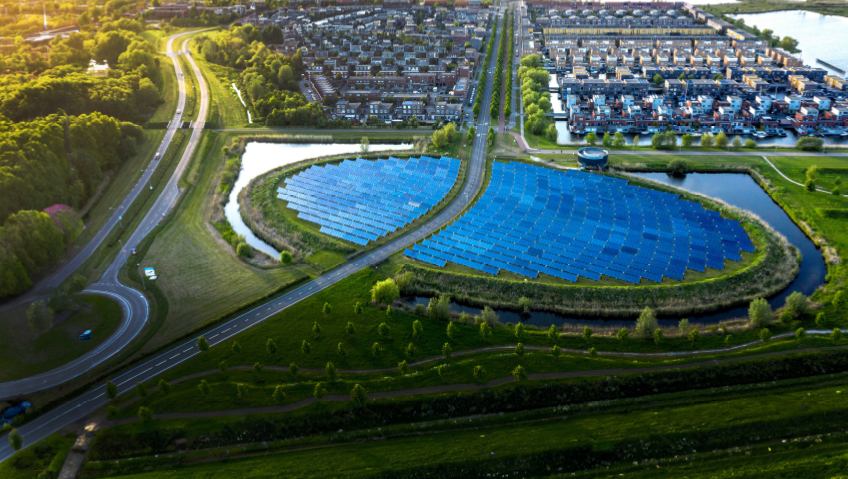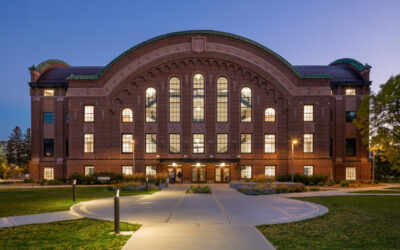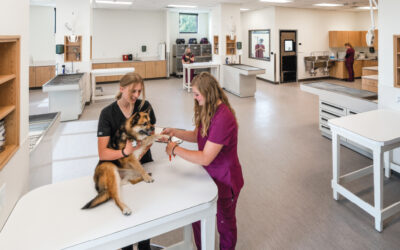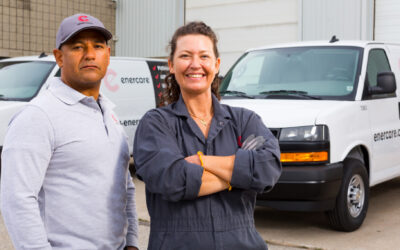Progressive to its core, Mowery came out of the chaos of COVID-19 guns blazing. Not one to rest on its laurels, this company optimized its powerful ability to adapt to everyday challenges by thinking smarter, fast. The result is optimized systems ready to achieve anything, including its most impressive niche job to date.
I had never come across a construction company with a technology committee until I met with Mowery’s Nick Laeder, Director of Sustainability, Quality Control, and Mechanical, Electrical, and Plumbing services a short while ago. Establishing its latest task force at the beginning of 2021, the technology committee team supports employees and their new remote working arrangements.
The new committee meets monthly to report on new, possibly useful technologies to be researched and challenges that might be mitigated or avoided with the help of technology. “This company, like none other I have been with in my twenty-year career, embraces and innovates technology and comes up with innovative uses for existing technology, and I’ve worked for some of the top ten contractors in the U.S.,” says Laeder. He also points out that, while many companies expect their staff to be ‘always on,’ Mowery approaches the concept differently by making it fun and providing them with technology that optimizes the work process.
He makes it clear that Mowery most certainly does not use the approach to encroach on its staff’s personal space or family time, quite the contrary. Instead of micromanaging its staff, it allows its people the space they need to live while delivering their best at work, no matter where they work. This means that employees have the freedom to take care of their family responsibilities while working.
“There’s no expectation of desk-watching from eight to five. [It doesn’t matter if] your kid has a doctor’s appointment or a school play or needs to be picked up,” Laeder says. While this may seem like old hat to many companies, Laeder points out that the difference at Mowery is the “full embrace,” of the fact that workers are “just as productive, if not more so, from home.”
The company knows that office attendance does not decide profitability, so this mode of working is embraced with a trust that is often lacking in high-pressure environments. “Nobody even questions it. Whatever you have to do to make your life work, do it. It’s such a welcoming, freeing concept. It makes the workday just so much more pleasant,” he says. “Every one of our meetings is also co-hosted on [Microsoft] Teams, making it easy for everyone to attend from anywhere. Mowery has respect for family life. It’s not like we’re taking conference calls at 6:30 PM.”
This Pennsylvania construction leader prides itself on strong customer relationships underscored by integrity and the latest in technology. It is trusted by industry greats in Mechanicsburg, York, and the Mid-Atlantic states of Maryland, Delaware, New Jersey, and Virginia for quality and top performance on every design-build project it delivers. Specializing in several building types, the company handles everything from preplanning to project delivery for some really big names. That includes Members 1st Credit Union, for which the company worked on their new headquarters; Geisinger Health Systems; Logistics Property Company; Trammel Crow Company, and automotive firms such as Jaguar/Land Rover, Audi, Mercedes, and BMW.
Mowery is popular amongst national developers, regional healthcare providers, colleges, universities, senior living communities, and automotive dealerships. It provides design-build and reconstruction services, construction management, and specialized project skills where size, design, or construction demands go beyond the norm. Part of its attractiveness is due to the ease with which its client partners can collaborate with its teams. All project information is easily accessible, making the process transparent and efficient.
“There is very little hesitation in piloting a new program here, and we do it frequently. We pilot new technology, new software, new applications. If it can help us, we adopt it across the board,” Laeder says. But its technology also reaches far beyond remote work. Mowery employs market-leading hardware and software at every phase of the design-build process to improve customer experience and its performance.
Design-phase technology includes virtual reality, using Enscape, a tool that allows clients to experience a virtual three-dimensional rendition of their buildings. As visualization can be difficult for many people, this is an invaluable tool to help clients to envision projects. It also aids in decision-making, conceptualizing, and stakeholder buy-in.
“People develop a sense of ownership once they have virtually walked through the space and contributed to the final product. Our customers love it,” Laeder says. In addition, the hardware unit can be prepared and plugged into a laptop anywhere.
Mowery employs drones to do everything from assisting project management to establishing energy efficiency and real-time remote access through live, on-site cameras. Each site is drone-inspected weekly and completed buildings are personally drone-checked by Laeder in his capacity as director of sustainability. Inspections especially focus on heat leaks through the building envelope caused by faulty door and window seals. The earlier these flights inspect a site, the sooner errors can be detected and corrected.
The energy audits use infrared thermographs, and fixing issues promptly during the construction phase of its projects ultimately reduces call-backs by tenants due to temperature-related discomfort. As this has become a trusted part of its construction process, the company has seen a significant improvement in installations. Even on ‘traditional industrial, light-duty tilt concrete wall panel’ buildings used for storage, warehousing, and distribution as typically seen in the northern United States.
“I was surprised how short my list of corrections was,” Laeder says proudly of Mowery’s latest—and massive at 1.8-million-square-feet—project. “It was literally ‘replace two door seals and close a roof hatch.’ It was fantastic.” This highlights that, budget and insulation allowing, older construction methods executed thoroughly can be as energy-efficient as many modern energy-efficient envelope systems.
Its technology committee also has the post-construction process covered. Spherical imagery is derived from state-of-the-art cameras featuring special lenses that enable shots at 360 degrees. Laeder describes how mounting the camera on a hard hat renders the best results. The images are processed on Procore construction management software. These images, alongside time-lapse images (created using HoloBuilder), form part of the company’s photo package.
“This is a very helpful tool for post-construction use. An owner can be standing in a room with their iPad and go back in time to see what the room looked like before the [improvements], new wiring, plumbing, et cetera without having to drill holes and insert cameras. It’s tremendously powerful from a visual standpoint,” he says.
Its team includes an in-house lead architect, plus civil and structural engineers, MEP coordinator, computer-aided drafting professionals, Leadership in Energy and Environmental Design (LEED) accredited professionals, certified healthcare contractors, and several other industry experts. The company’s new direction is evident from recently created positions such as the directorship of sustainability, a special projects team, as well as services such as energy modeling, energy auditing, and sustainability reviews.
Sustainability has always been a part of how Mowery approaches construction. “We treat sustainability not as a function of quality, but quality as a function of sustainability. Which is, I believe, what differentiates us from most other contractors,” says Laeder, who explains how changing the concept changed the company’s mindset.
This translates into better craftsmanship driving improved sustainability, huge time-and-cost savings, and above all, better quality and tighter, more energy-efficient building envelopes. It also results in far fewer call-backs and, therefore, fewer financial losses. The team tests mock-up designs to improve its knowledge of and experience with best-in-class temperature control methods versus material performance throughout every season.
The company is also a leader in waste mitigation. According to Laeder, new construction is one of the main contributors to landfill waste in the country, making reduction imperative. To this end, Mowery works ceaselessly to become as effective at managing materials as possible while keeping up standards. “We’re trying across the board to cut our consumption [and] waste, increase our recycling. Not from a profitability standpoint. It costs money for us to do this. We’re doing it because it’s the right thing,” he says.
This approach landed it a coveted Passivhaus-concept project for Presbyterian Senior Living. The Windy Hill II building project at Philipsburg, Pennsylvania was completed several years ago. Passivhaus originates in 1980s Germany and improves a building’s energy efficiency by optimizing a building envelope’s sealing capacities. The method proved so successful in downscaling the cost of maintaining ideal interior temperatures that it has become a regular feature in many of Mowery’s buildings.
Mowery was founded in 1925 in Carlisle, Pennsylvania by the brother duo of Raymond S. and Clarence Mowery, who each made unique contributions to its legacy. David Cross took over the president’s chair from Don Mowery in 2017. Today, he remains committed to continuing his predecessors’ tradition of keeping strict timelines and offering fine value with the help of the company’s team of industry professionals.
Pre-COVID, the firm enjoyed phenomenal growth, which was not changed dramatically by the pandemic. Despite real challenges such as supply chain issues, it still managed to achieve its second-highest growth rate in its ninety-five years of existence, no mean feat in an economic climate such as that of the past two years. This growth and the broadening of its services have seen its staff numbers grow from around seventy-five at the time of our last interview in 2019 to steadily approaching one hundred today.
“I have been in construction for twenty-three years now,” Laeder says, noting that working at Mowery “is the absolute most fun I’ve had building. I literally enjoy going to work every day.”
Progressive in all other aspects of its business, including expansion into new fields, Mowery retains its signature conservative approach to the future, maintaining its goals of slow and steady growth. The company will continue to shape its future and those of its teams by providing the mentorship and in-field experience its people need to grow and attain current skills.
It is also on top of supply chain issues, coming up with creative solutions to seemingly insurmountable challenges as far as possible. Skillful networking, clear communication, and teamwork continue to prove to be essential, as do correct and collaborative project management.
David Cross was listed on the 2021 Central Penn Business Journal’s Power 100 List, plus the company made the sixth position on the same publication’s list of fastest-growing companies, coming up fourteen positions from last year. Mowery will continue doing what it does best by making a positive difference to everyone with which it works.
